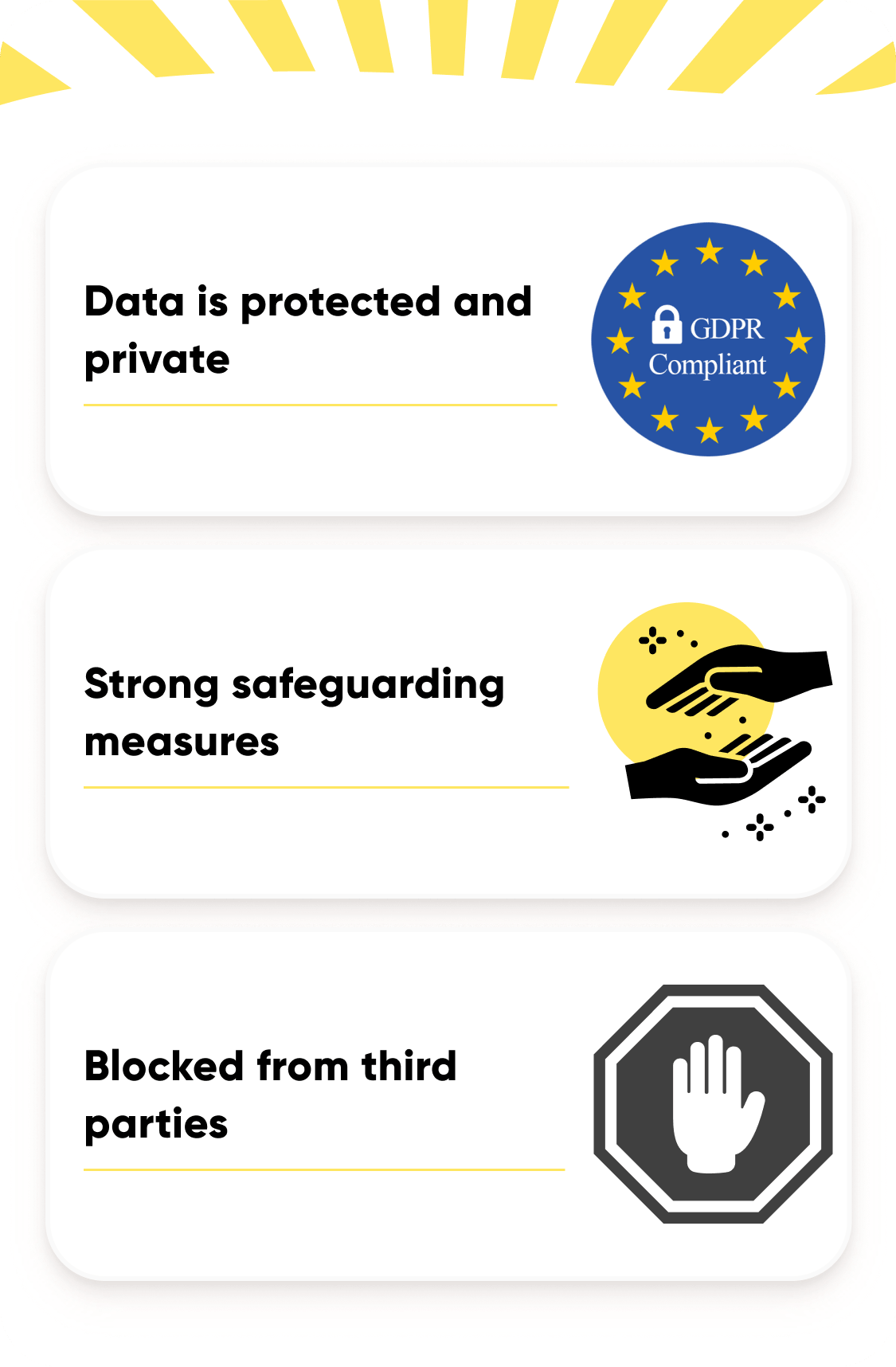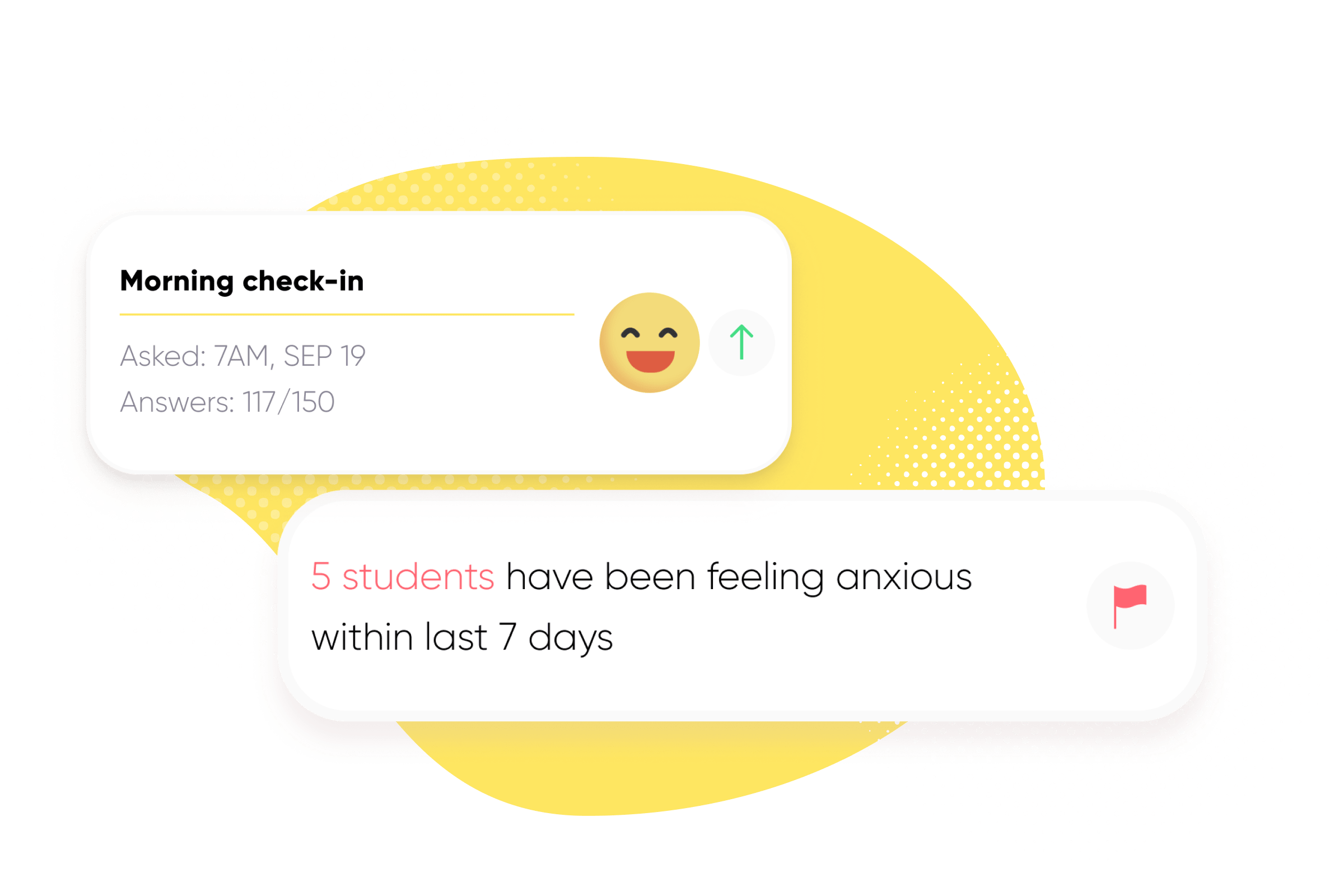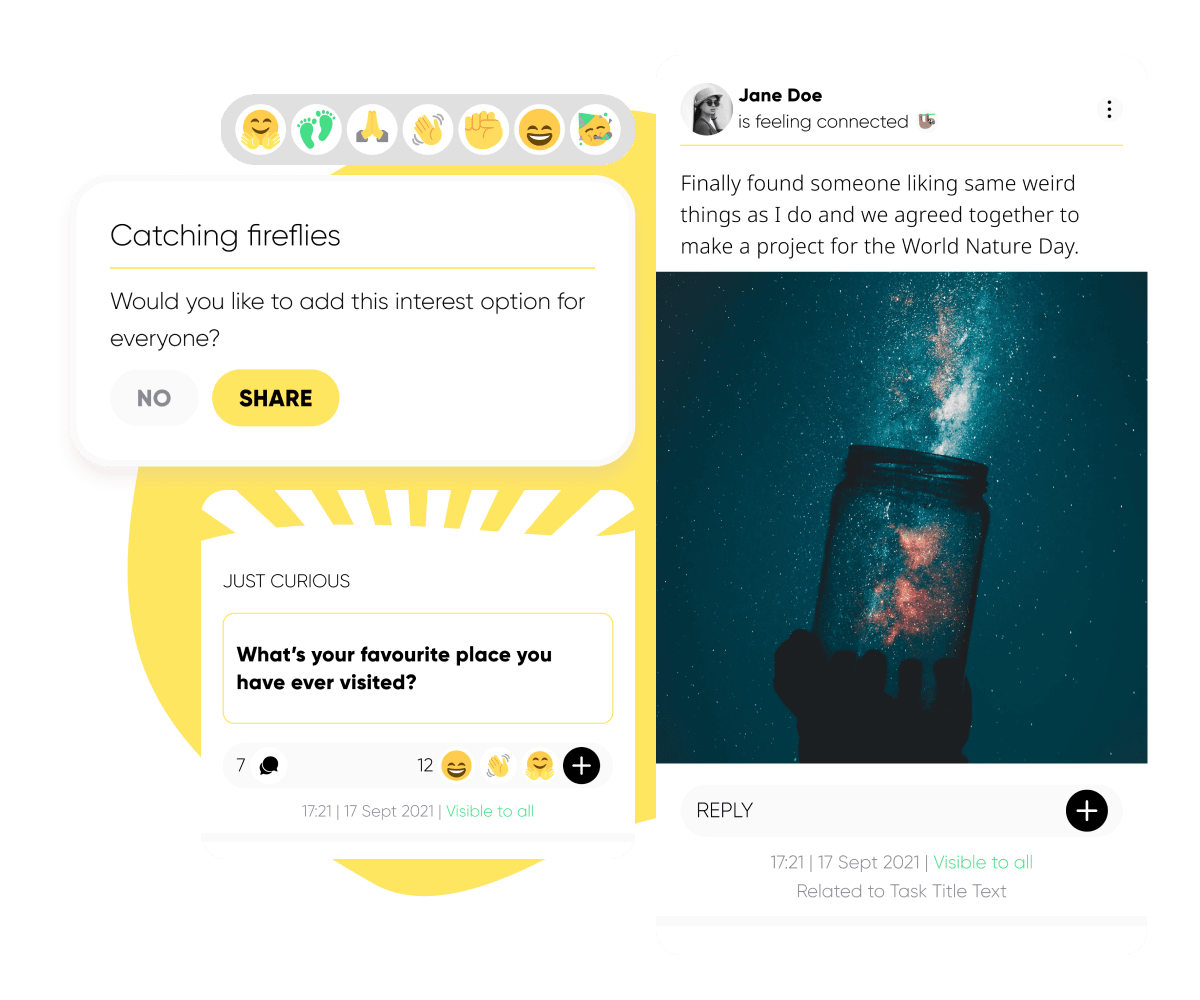
Kathleen Naglee
– Principal, International School of Helsinki
“Our vision at ISH is to empower and inspire one another to take thoughtful action while having an inclusive, challenging and engaged environment with student autonomy — Clanbeat supports our students and school staff on this journey.”

Melanie Riik
– 9th grade student at Tõrva Gymnasium
“Clanbeat makes me think how my week has been. It’s nice to share my impressions with others. I can talk to my homeroom teacher and classmates – it brings the whole class closer together.”
Celeste Gardner
– Action Coordinator, Halcyon London International School
“Clanbeat provides our students with a platform to manage their school experience in a thoughtful and prosocial way. It’s about time we started taking student well-being seriously and the app is a powerful compliment to our work.”

Who is behind the app and what is the methodology that underpins it?
Well-being is the measure of what people think and feel about their lives, such as the quality of their relationships, their positive emotions and resilience, the realization of their potential, or their overall satisfaction with life, i.e. their well-being.
Well-being generally includes global judgments of life satisfaction and feelings ranging from depression to joy.
– Diener E, Scollon CN, Lucas RE. The evolving concept of subjective well-being: the multifaceted nature of happiness. In: E Diener (ed.) Assessing well-being: the collected works of Ed Diener. New York: Springer; 2009:67–100
The evidence tells us that treating different, specific health issues separately will not tackle the overall well being of this generation of young people. Young people’s mental and physical health are intertwined, and at the heart of health and well-being are their relationships with others. Young people think about their health holistically. They want an integrated, youth friendly approach that recognises their particular needs, makes them feel supported, emphasises the positives and helps them to cope.
– Sapienza, J.K. and Masters, A.S (2011) cited in DH (2014) Annual Report of the Chief Medical Officer. Op cit 6 WHO (2014) Health for the World’s Adolescents – a second chance in the second decade. Geneva: WHO
10-20% of children and adolescents worldwide experience mental disorders, which if untreated, severely influence their development, educational attainment and their potential to live fulfilling lives.
Evidence shows that improved mental wellbeing during childhood and adolescence has a broad range of impacts across the life course including the prevention of mental disorder. This is important since mental disorders account for one of the largest and fastest growing categories of the burden of disease (OECD, 2011), in part because up to 50% of lifetime mental disorders arise before adulthood (Belfer, 2008). Effective interventions exist to treat mental disorder during childhood and adolescence, prevent it from arising and also to promote mental health with economic savings even in the short term. However, the majority who would benefit do not receive such interventions which has a broad set of impacts and associated economic costs (Olesen et al, 2012).
– Joint Action Mental Health and Wellbeing (2013)
Data sharing is controlled by the users. Also, we use data encryption, keeping your digital footprint safe and secure. Clanbeat is GDPR compliant.

Do you want to explore Clanbeat for your organisation?
We have found that the best way to get started is to discuss fit over a video call / demo.

